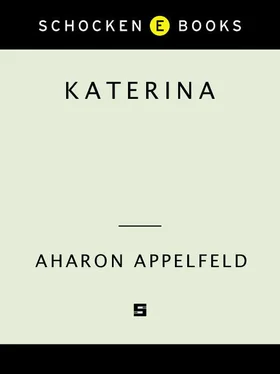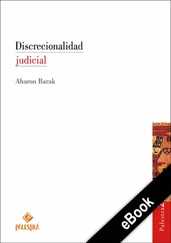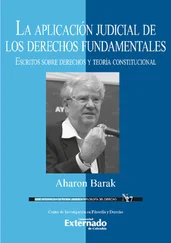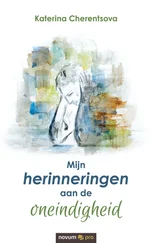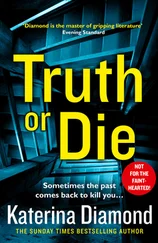In the spring he didn’t go out to the field. He ignored me as though I didn’t exist. Sometimes he would brandish his fist at me and slap my face, distractedly, the way one swats a fly. My mother’s death freed him to drink as he wanted. Sometimes he would come home in a gay mood, like a wild young man.
One night he approached me, may God forgive me, and spoke to me in a voice that wasn’t his: “Why not sleep with Daddy? The house is cold.” His eyes were glassy, and a kind of wanton redness glowed in them. He had never spoken to me in a voice like that. “It’s good to sleep with Daddy,” he said to me again in the voice that wasn’t his. I felt in my heart that this was sinful, but I didn’t know for sure. I crawled under the table like a dog and didn’t utter a word. Father crouched on his knees and said, “Why are you running away from me? It’s your daddy, not a stranger.” Then he put his two huge hands on my shoulders, pulled me to him, and kissed me. He then got to his feet, made a dismissive gesture, and sank onto his bed, asleep. After that, he didn’t look at me again.

2
A FEW MONTHS AFTER my mother’s death, Father brought a new wife home. She was a tall, broad woman who never spoke a word. The mountain from which she came was embodied in her face: a cramped face, like a workhorse’s. Father used to talk to her in a loud voice, as though to someone deaf.
“What are you doing?” she would ask me in a frightening tone.
“I?” I recoiled in my great fear.
“You’ve got to work,” she said. “You can’t sit idle.”
I used to spend most of the day outdoors. Even then I knew that this life would pass away and that another life, different and distant from here, would emerge from it. Every night I used to see my mother in a dream, and she, as always, was busy with housework, debts, and sick cattle. “Mother!” I wanted to have her near me, but she, as in life, was angry at everyone. I told her that Father had brought home a new wife. She seemed to grasp the fact, but ignored it.
In the autumn, I left the house. “Where to?” asked my father.
“To work.”
“Be careful, and don’t step off the straight and narrow path,” he called, and without adding a word, he disappeared from my sight. My father was a powerful man; he didn’t dare strike my mother, but I heard that he used to beat his second wife fiercely. They told me that he changed in the final years of his life and started going to church on Sundays.
I can hear my mother’s presence simmering and hissing, but I see my father before me as though he has refused to leave this world. In the summer many years ago, my father once stood leaning on a long pitchfork and smacked his lips to the cows, as if he were blowing kisses to slutty girls. The cows looked at him and smiled, which tickled his fancy, and he kept on smacking his lips. A strange kind of intimacy heated up between him and the cows. That summer, when I was in the third grade, on my way to school I suddenly heard my father’s voice: “Where is she going?”
“To school,” Mother answered without raising her head.
“What good does it do her? They don’t learn anything.”
“You’re not a priest. The priest ordered us to send the girls to school.”
“I say no.” A spirit of foolishness arose within him.
But my mother wasn’t alarmed, and she told him, “There is a God in heaven and He is king and He is the father, and we are ordered to heed Him, not you.”
Mother was a strong and brave woman. I saw her courage once in the winter, when she fought with a horse thief and made him run for his life. But for some reason she did not bequeath that courage to me. I was afraid of every shadow and listened for every sound; at night, even the crickets would alarm me.
This isolated place gave me no joy, but my first memories are still crystal clear: the rains, for example, the furious rains, or the harrowing rains, as they call them here. For my part, I loved the swift rains of the summer and the mist that used to rise from the meadows after a shower.
I never see my father and my mother together. As if they had never been together. Each of them had a special connection with animals. My mother took care of them devotedly but coldly; a healthy cow didn’t count for her. My father, in contrast, had a provocative relation with them, as if they were women to be seduced.
My mother was contemptuous of him for that behavior. After my mother’s death, I occasionally used to visit the chapel. She seemed to be lying on the large icon and praying together with the Holy Mother. I used to sit and watch the women praying, forlorn women. Sometimes they would hand me a piece of cake and bless me. There, among the smoky candles, the mildew, and the offerings I learned to observe people.
My father and his new wife did not, apparently, have a happy life. My mother’s spirit hovered in every corner. The new wife, the stranger, tried in vain to dislodge her from her domain. More than once I heard her grumble, “I can’t manage to do anything. In my house everybody was pleased with me, and here everything goes wrong.” Father, of course, didn’t accept these excuses, and every time bread burned in the oven or the food spoiled, he would hit her. She used to screech and threaten to run home. Years later, I heard that she dished out her fair share too, and when my father got sick, she treated him shabbily. There were rumors that she poisoned him. Who knows? She too is in the world of truth. If she sinned, she’ll pay her due. All accounts are settled in the end.
Something else, no small matter, used to be whispered about the house: my father’s bastards. Mother, of course, never forgave him, and she would often remind him of his sin. Each time she mentioned it, a peculiar smile would spread over his face, as if it weren’t a sin anymore but some trivial lapse. He had two bastards, from the same woman—a notorious harlot. In my childhood, I had seen them with my own eyes: sturdy young men, sitting on a narrow wagon and driving two skinny horses. Their way of perching on the narrow wagon struck me as funny. At a second glance, I discovered they looked like my father. “Mine die and the bastards live and thrive,” I heard my mother say more than once, gritting her teeth.
I left home with neither pain nor remorse, taking the back road everyone calls the Jewish road. Here, in the spring, but also in the winter, thin Jews used to gather, like grasshoppers, and sell their wares. They were one of the frightening wonders of my childhood. With their appearance, their way of sitting and bargaining, they weren’t like creatures of this world but like dark spirits scuttling about on spindly legs. “Don’t go there.” I heard my mother’s voice more than once. That warning just increased my curiosity, and every time they appeared, I would be there. They used to place their suitcases on the ground and spread out their wares in front of everyone. They had many ways of displaying: on ropes they would stretch from tree to tree, on improvised stands, on twigs, or simply on the ground. Those little, wrinkled suitcases proved to be full of treasures: colorful shirts, stockings, high-heeled shoes, and embroidered underwear—mostly women’s clothing and women’s finery. The women would swoop down on the garments and snatch whatever they could. I loved the city smells, cloaked in embroidered nightshirts.
If you ignored their frightening presence, the sight was diverting. I envied the women who used to bargain and buy new things, which would be wrapped in papers and cardboard. I didn’t have a penny. Once I asked my mother for a coin to buy a candy, and she scolded me, saying: “Don’t go there. The Jews will cheat you.” For hours I used to sit there. The peddlers were short and lively, and sometimes it seemed that they didn’t walk on human legs but rather on birds’ legs, so they could hop. Occasionally, a few peasants would appear abruptly and drive them away with whips. Once, in their flight, they left behind a pair of colorful stockings. When I showed them to my mother, she said, “Don’t wear them now. Save them for the holy days.”
Читать дальше
